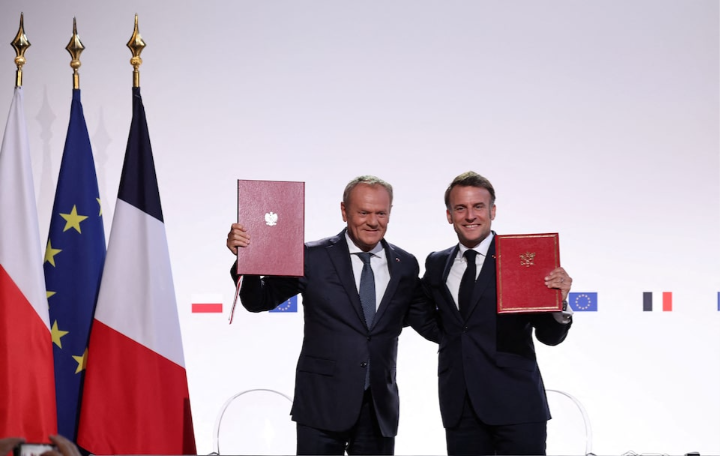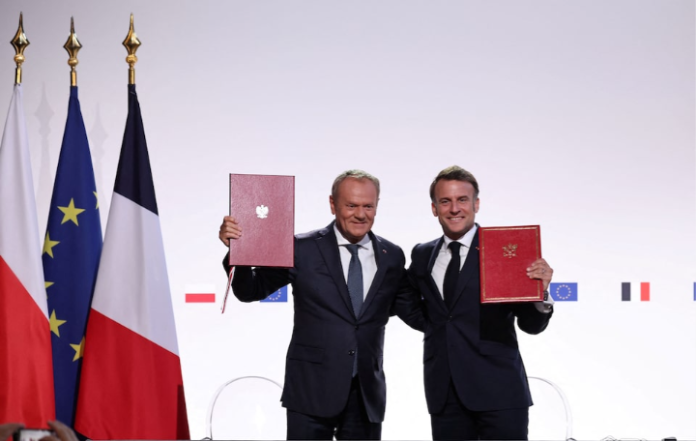In a bold step towards strengthening European defence autonomy, France and Poland signed a landmark strategic treaty on May 9, 2025, deepening cooperation on security, nuclear energy, and military technology. The signing, which took place in the French city of Nancy, underscores a significant shift in European alliances as uncertainty grows over the United States’ long-term support for the continent’s security.
The “French-Polish Friendship and Strategy Pact” was signed by French President Emmanuel Macron and Polish Prime Minister Donald Tusk. This is the first such bilateral agreement France has sealed with a Central European nation, marking Poland’s growing influence on the European stage.
The pact includes a mutual assistance clause, ensuring both nations support each other in the event of an attack. It also commits the two NATO members to closer military and technological cooperation, with France ready to share its expertise in defence and energy.
“In these challenging times, France and Poland can now fully rely on one another,” said Prime Minister Tusk, highlighting the urgency for European nations to tighten alliances amid changing global dynamics.
While Tusk mentioned earlier that the agreement could open the door to talks on expanding France’s nuclear umbrella to include Poland, the treaty itself does not specifically address access to France’s nuclear arsenal. However, this remains a topic of interest as European leaders increasingly contemplate defence strategies independent of U.S. guarantees.
President Macron, who previously expressed willingness to extend France’s nuclear protection to other European nations, reiterated his commitment to European defence without confirming his attendance at the upcoming Ukraine summit hosted by the so-called “coalition of the willing” — a group led by France and the UK.
Importantly, the treaty goes beyond military matters. It includes provisions for closer cooperation on nuclear energy, with France aiming to export its nuclear expertise and technology across Europe. This aligns with both countries’ long-term energy and environmental goals, especially as the continent works to reduce its dependence on fossil fuels and foreign energy sources.

Poland, strategically located on NATO’s eastern flank, now spends 4.12% of its GDP on defence — the highest percentage in the alliance. With Russia’s ongoing aggression in Ukraine and a more cautious tone from Washington under former President Trump, Warsaw has been eager to diversify its defence partnerships.
France, meanwhile, has already signed similar bilateral pacts with Germany, Spain, and Italy, as it pushes for a more self-reliant European defence posture. The Nancy agreement adds momentum to that effort, bringing a Central European voice into the conversation.
Interestingly, the choice of Nancy holds symbolic value. It was once home to Poland’s King Stanislaw Leszczynski, who became Duke of Lorraine after losing his throne in the 18th century — a subtle reminder of the historical ties between the two nations.
As Europe braces for the possibility of reduced U.S. involvement, France and Poland’s strategic alignment sends a powerful message: the future of European security may increasingly rest in European hands.



